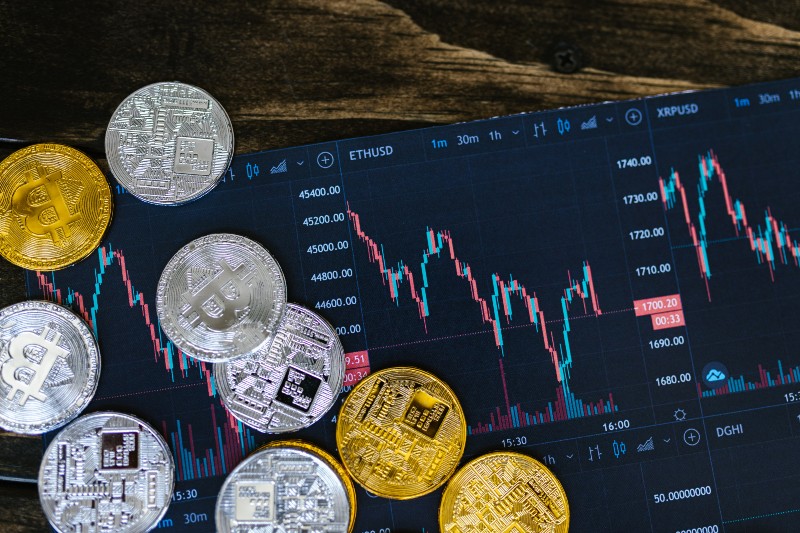Tokens in the cryptocurrency ecosystem are digital assets generated on another cryptocurrency’s blockchain.
Data on a blockchain is in a series of linked blocks. One example of this data is smart contracts, which are all-encompassing blockchain-based computer programs. In the case of a cryptocurrency, it will add its blockchain after a transaction is confirmed. Just go to bitcoins evolution and register for free to start trading Bitcoin.
Blockchains are the backbone of all cryptocurrencies. Suppose a digital currency does not have its blockchain but instead uses one or another coin. In that case, it is considered a token. “crypto token” refers to a digital currency token or the standard measurement for crypto assets. These tokens are representations of fungible, tradeable, and independently-operating assets. While crowd sales are the most common use case for cryptocurrency tokens, additional applications are possible. These tokens are often created, sold, and exchanged using the standard initial coin offering (ICO) protocol.
How Crypto Tokens Function In The Blockchain
We’ve established that crypto tokens are just cryptocurrency tokens—these tokens in exchange for cryptocurrencies or virtual currencies and function on their blockchains. Blockchains are distributed ledgers that are decentralised and record transactions in a sequence of blocks. Thus, crypto assets, also known as crypto tokens, represent a fixed value.
Everything operates in this way. The cryptographic techniques to secure these entries include public-private vital pairs, elliptic curve encryption, hashing, and other measures. Cryptocurrencies, on the other hand, are online payment systems that employ a digital token as their money unit and guarantee confidentiality during financial transactions. These tokens are represented in the system by entries on a private ledger.
Tokens facilitate transactions on blockchains developed according to generally agreed blueprints, such as the Ethereum network. Smart contracts and decentralized applications are at the heart of how these blockchains function; they enable the vast numbers of transactions on the blockchain to be handled and controlled by computer code.
Tops uses for Crypto Tokens
Crypto tokens have many purposes beyond only as a medium of exchange. We’ve compiled a list of the top uses for crypto tokens:
Governmental Symbols
Governance tokens are digital assets that give their holders the right to vote on the direction of a blockchain project. Token holders have a say in the future development of a cryptocurrency by submitting ideas and casting votes on those proposals. Your voice holds greater weight the more tokens you have.
Dispersion Of Monetary Authority
Decentralized finance refers to blockchain-based financial systems that operate independently of any central authority (DeFi). If you want a loan but don’t want to deal with traditional lenders, you might use crypto tokens as collateral and apply for one via a DeFi platform. All transactions on a given DeFi platform using its native token.
Payouts In Bitcoin
Like the aforementioned DeFi schemes, those who lend their bitcoins are the lifeblood of these operations. In exchange for their financial investment, investors get bitcoin—these prizes in digital tokens.
The Problem With Counterfeit Tokens
A non-fungible token is a crypto token that represents ownership of a digital asset (NFT). Bitcoin ownership information in a pass. To prove you are the rightful owner of a unique digital image, GIF, or in-game character may be done using an NFT.
When Compared To What Do Crypto Tokens Shine?
Tokens allow developers to launch a cryptocurrency without first creating a blockchain. That’s a big deal since it makes producing bitcoins quicker, easier, and cheaper. A blockchain’s ability to process transactions quickly and cheaply is crucial for preventing hackers from stealing bitcoin.
However, constructing a blockchain is just the beginning of the process. Validators are also needed for a new cryptocurrency to verify transactions. Since cryptocurrencies are decentralized, they rely on users to provide their computing resources to the blockchain as validators.
The Sum Up
For instance, Bitcoin mining is essential to the cryptocurrency’s operation and requires mining hardware to be used by people worldwide. A new currency’s creators must also consider how they can draw enough “validators” to maintain the blockchain’s security and thwart fraudulent transactions.
Creating a crypto token is the quicker option. If a suitable blockchain exists, such as Ethereum’s, developers may “hop on” it. They may then use their digital token on the Ethereum platform, which provides a tried-and-true system for handling financial dealings and powering intelligent contracts.
